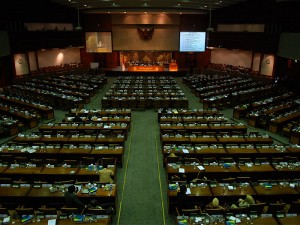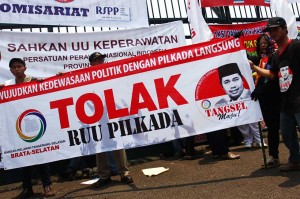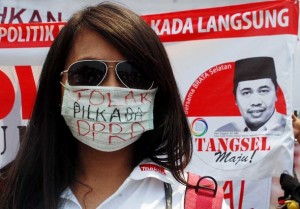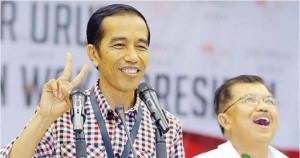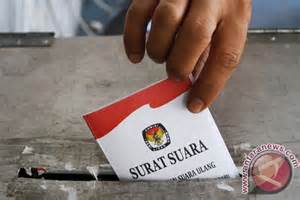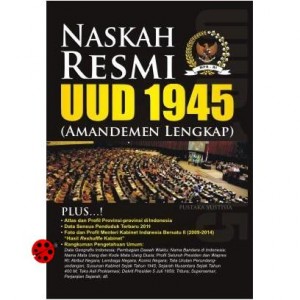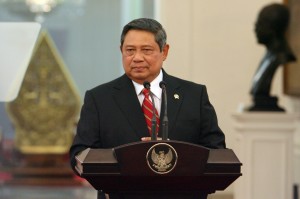A New President, an Old Election Law Posted by asimonoff on Oct 4, 2014 in Uncategorized
Indonesian politics’ is on the spotlight again after Prabowo Subianto, the defeated presidential candidate, has refused to concede defeat to Joko Widodo “Jokowi” and became international news. Now, it is another twist of Indonesia’s electoral democracy. The Indonesian House of Representatives of the Republic of Indonesia (DPR RI) passed a controversial bill to scrap Indonesian citizens’ right to vote for their local leaders (Pilkada langsung): Mayor and Governor. The bill is unpopular, as shown through strong reactions in mass media, social media and direct protests on the streets.
Under the current system, local leaders, are elected by voters, a system that began in the reformation era, in 2005, as part of efforts to decentralize political power after the fall of Suharto in 1998. The system that made someone like Joko Widodo, now president-elect, who is not part of a political elite to emerge.
In the election system, which was used during the Suharto-era, it is the legislative council at the provincial or regional level (DPRD) who elect the local leaders. And why the DPR made this sudden change? Critics suggest that it is actually a Prabowo revenge to sabotage the president-elect after losing in the July 9 presidential elections, as well as in subsequent attempts to challenge its results. And it is a way to undermine the new president-elect. Moreover, it is the coalition of Prabowo’s political parties in the legislature, the “Koalisi Merah Putih” or Red and White coalition that pushed the Bill.

Is there a way to stop the bill to become a law? No, if the DPR has passed the bill. Under the new enactment of the 1945 Constitution of the Republic of Indonesia (UUD 1945), that was issued after the reformation, stated, “a bill passed by DPR that is not signed by the president within 30 days will automatically become law.” The new law was enacted after Suharto refused to sign the “RUU Penyiaran” or a bill of the broadcasting act.
The following is the transcript of enacted law:
“Menurut UUD 1945 Pasal 20 Ayat 5, RUU yang sudah disetujui oleh DPR tapi tidak ditandatangani presiden dalam waktu 30 hari, rancangan itu tetap akan berlaku.”
The president of Indonesia, Susilo Bambang Yudhoyono, or also known as “SBY”, can overturn the law of ending direct elections soon after he signed the bill into law by issuing a Perpu (an executive branch proposed bill). That might not be easy as it should be. We will see how it turns out.
The following is the transcript of the enacted law:
“Menurut UUD 1945 Pasal 20 Ayat 5, RUU yang sudah disetujui oleh DPR tapi tidak ditandatangani presiden dalam waktu 30 hari, rancangan itu tetap akan berlaku.”
The president of Indonesia, Susilo Bambang Yudhoyono, or also known as “SBY”, can overturn the law of ending direct elections soon after he signed the bill into law by issuing a “Perpu” (an executive branch proposed bill). That might not be easy as it should be. We will see how it turns out.
Important terms
- Pilkada langsung (Pemilihan Kepala Daerah langsung): A direct election for local leaders.
- PDI (Partai Demokrasi Indonesia): The Indonesian Democratic Party.
- DPR RI (Dewan Perwakilan Rakyat Republik Indonesia): The House of Representatives of the Republic of Indonesia.
- DPRD (Dewan Perwakilan Rakyat Daerah): The Legislative Council at the provincial or regional level.
- RUU (Rancangan Undang-undang): a bill (proposed law).
- Perpu (Peraturan Pemerintah Pengganti Undang-undang): Government Regulation Substituting a Law
- UUD 1945 (Undang-Undang Dasar 1945; usually referred to as UUD’45): The 1945 Constitution of the Republic of Indonesia.

Build vocabulary, practice pronunciation, and more with Transparent Language Online. Available anytime, anywhere, on any device.
About the Author: asimonoff
I’m an Indonesian language instructor, instructional material developer, reading test developer, and interpreter. I have been teaching Indonesian to adult students for 15 years, and have been teaching students from many backgrounds, such as private, military and diplomatic service employees. I’m Indonesian, but am living in the US now; my exposure to different cultures in my home country and in the US has enriched my knowledge in teaching Indonesian as a second language. I approach the teaching of the Indonesian language by developing students’ critical cultural awareness and competence. This method of teaching has been proven to be a key to the success of my students. Students become conscious of the essential role culture plays in the language.



